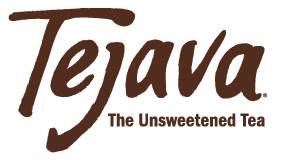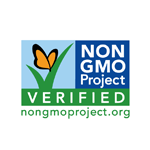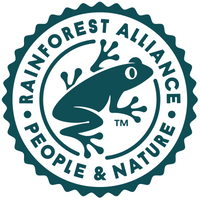Everyone knows fruits and vegetables are good for us, so eating a plant-based diet must be good for us too, right? Of course. But let's first define what we mean when we say "plant-based diet." What does such a diet include and eliminate? Is it a STYLE of eating, WHAT you’re eating, How your food is PREPARED? And finally, what are the health benefits of a plant-based diet, and where does this diet fall short nutritionally?
Some dietitians, chefs, foodies, and health-oriented individuals talk about plant-based diets as if it’s a separate or new way of eating. Others use the terms “vegetarian” and “plant-based” interchangeably. Is it just another way of saying you’re eliminating animals from your diet or is there more to it?
We're talking about focusing on eating foods that come from plants and other foods that are healthier and nutritionally dense and where plants make up the larger portion of the diet.
Plant-based Eating
Generally speaking, plant-based foods are vegetables, fruits, legumes, nuts, seeds, and whole grains. Does that mean we eat those foods and eliminate all others? What about white and other refined grains, dairy, sugars, and packages of vegan foods – or vegan fast foods? They’re plant-based but not necessarily healthy.
We’re going to talk about a plant-based diet in loose terms and say it encompasses a diet with a plant-based foundation with a focus on health and balance; eating more of the good stuff and less of the bad stuff.
Taking a broad view, plant-based eating focuses on eating foods that come from plants and other foods that are healthier and nutritionally dense.
A good way to think about a plant-based diet is to put a higher priority of plant-derived foods over animal-based foods and eating foods as close to their natural state as possible – meaning preparing them from scratch.
In this way, a “plant-based” diet encompasses veganism (no animal products or by-products like butter, eggs, dairy, or honey), vegetarianism (includes animal by-products that do not threaten the life of the animal), raw foods (nothing cooked over a certain temperature), Pescatarianism (allows for the consumption of fish), and even Paleo (which incorporates some meat, poultry, fish, and eggs). Ultimately, a plant-based diet precludes eating processed foods.
Pros
There are numerous positive benefits derived from eating a plant-based diet. A plant-based diet is:
- Rich in vitamins, minerals, fiber, antioxidants found in fruits, vegetables, and whole grains
- Heart-healthy, with lower cholesterol and saturated fats and higher in dietary fiber
- Disease prevention. Overall, plant-based diets are higher in antioxidants, helping to reduce chronic inflammatory diseases such as diabetes. Also, staying away from over-processed foods minimizes our exposure to chemical additives.
- Weight loss. Eating less animal fat and more vegetables, fruits, and dietary fiber keeps calories and fat consumption down and promotes better digestion and your metabolism.
- Contributes positively to the environment. The environmental impact of the livestock industry is affected through the use of chemical fertilizers, pesticides, and antibiotics; and depletion of fossil fuels, methane in the atmosphere.
- Animal preservation and ethics. Eating plant-based foods minimizes the exploitation and cruelty of animals. Those with ethical concerns can “vote” with their dollars and feel they are supporting what’s important to them morally.
- Wide variety of food choices. There are lots of options for what to eat, unlike many other diets where you have to deny yourself certain foods you like or that require you to carry a checklist to the grocery store to make sure you’re purchasing the “right” items.
- Plant-based meals can be prepared more quickly – or just as quickly – as other foods. You can even find them already prepared, for instance, in the grab-and-go sections of grocery stores. Examples include bagged produce like washed leafy greens, and semi-prepared entrees and sides in the produce section.
- Less expensive. While eating fresh foods might seem more expensive – especially if they’re organic – some costs can be offset by eliminating meat, poultry, and/or fish and buying bulk dried foods. Plus, beans, nuts, seeds, and grains are relatively inexpensive and filling. Also, fresh foods go a long way in feeding yourself and your family compared to packaged foods in terms of quantity and price.
What could possibly be negative about eating a plant-based diet?
-
Fresh produce can be very perishable, so buy just as much as you need to minimize waste.
-
Possibly a protein-deficient diet. Animals, milk, and eggs contain necessary amino acids for protein. Plant-based proteins are an incomplete protein source unless properly combined. Make sure you’re eating plants that can supply the appropriate quantity and combination of amino acids.
-
Possibly deficient in certain nutrients such as iron calcium, and B12. Plant-based iron is not as bioavailable to the body as animal-based iron, but you can improve your body’s absorption by eating foods containing vitamin C, vitamin A, meat, fish, and poultry during your meals. Getting enough calcium from plants is also more difficult, so pair it with high vitamin D foods like mushrooms which help absorption, and dark leafy vegetables, which contain more calcium. And plants don’t contain Vitamin B12, so you need to add foods fortified in B12, soy, and nutritional yeast to prevent anemia and/or take a B12 supplement.
-
More time for meal planning and preparation – but hey, anyone preparing meals from scratch knows it’s worth the wait. But as plant-based foods become more mainstream, the convenience factor will likely improve.
-
If you decide to go vegetarian or vegan, it could be challenging to give up eating animals. But a plant-based diet doesn’t have to exclude animals. Each person can find their happy medium.
Stepping into a plant-based diet doesn’t have to be an all-or-nothing proposition and it doesn’t have to happen overnight. Take it a step at a time. Slowly substitute non-plant-based foods and highly processed foods for plant-based and healthier ones. See our examples below for plant-based foods to add to your diet and foods to avoid to maintain a plant-based diet.
As your refrigerator and pantry get emptied, refill with items from the produce section of the supermarket, your local farmer’s market, or health food store. Try to include all the food groups in each meal: plant proteins, fruits, vegetables, and whole grains. And don’t forget that zero calorie, zero sugar beverages like unsweetened Tejava tea are perfect accompaniments for a healthy plant-based diet.
Add these foods to your plant-based diet:
-
Vegetables: kale, spinach, lettuce, tomatoes, cucumber … stuff you put in your raw salads, and cooked vegetables such as potatoes, squash
-
Fruits: all fresh fruits and not dried (dried fruits often contain added sugar and preservatives)
-
Whole grains: brown rice, oats, quinoa, barley
-
Legumes: peas, chickpeas, lentils, peanuts, beans
-
Plant-based protein: tofu, tempeh (fermented soybeans), soy milk
-
Nuts: any whole and unprocessed nuts and nut butters such as almonds, cashews, brazil nuts, etc.
-
Seeds: pumpkin seeds, flax seeds, sesame seeds, hemp seeds chia seeds …
-
Plant-based oils: unrefined coconut, avocado, grapeseed oils
-
Spices and herbs (all, except those with preservatives)
-
Unsweetened beverages: coffee, tea, sparkling water
Avoid these foods to maintain a plant-based diet:
-
Fast food
-
Refined grains: white rice, white bread, refined pasta, white flour, refined cereals
-
Packaged baked goods, snacks, and desserts: cookies, chips
-
Pre-packaged and canned sauces, soups, and gravies
-
Processed meats: bacon, sausage, other smoked meats, lunch meats, and meats, chicken or fish fried in unhealthy oils
-
Beverages with added or artificial sugar
-
Highly refined cooking oils such as hydrogenated oil




